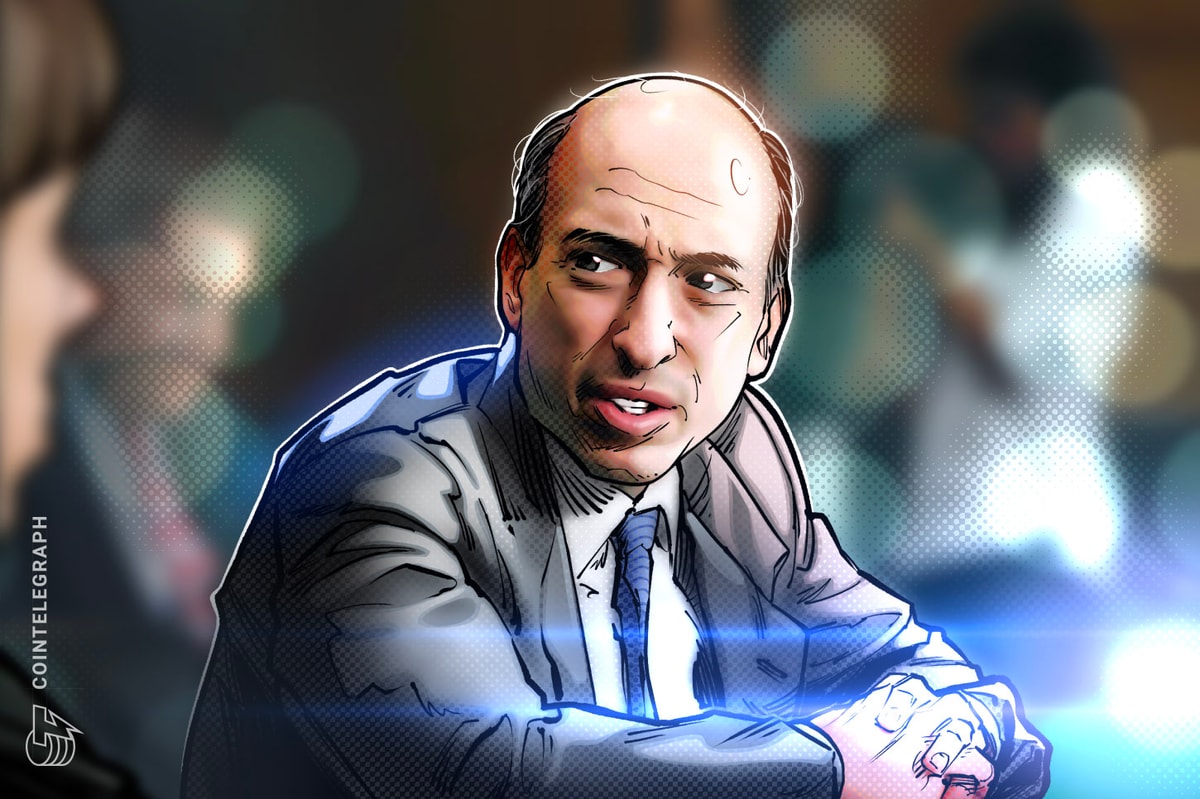Gary Gensler, the United States Securities Exchange Commission (SEC) chair, recently appeared before the U.S. House of Representatives Financial Servi

Gary Gensler, the United States Securities Exchange Commission (SEC) chair, recently appeared before the U.S. House of Representatives Financial Services Committee for a hearing regarding his leadership of the regulatory agency.
The hearing, with Gensler as the only witness, promised to be unpleasant for the SEC chair, with the federal agency’s actions during Gensler’s leadership since spring 2021 coming under scrutiny.
From the introduction by the committee chair, Representative Patrick McHenry, Gensler was under fire for the SEC’s perceived overreach and approach of regulation through enforcement.
McHenry stressed that the absence of a clear position on the legal classification of cryptocurrencies doesn’t make it easier for companies to comply with the SEC’s demands.
A day before the hearing, Representative Warren Davidson announced a measure to fire the SEC boss and cut the power of his successors “to correct a long series of abuses” against the crypto industry.
As threatening as it may sound, this was not the first and will likely not be the last attack on Gensler. The SEC chair has made himself several enemies during his two years in the top job — and not just in the crypto industry.
But hyperbole and congressional saber-rattling aside, was the April 18 hearing that bad for the SEC chair, and could it soften his position on crypto?
Grilling and cheering
The fiery opening statement by McHenry was inspired by the SEC’s impressive record of 50 separate enforcement actions against digital asset firms and the agency’s request for an additional $78 million of funds to expand its activity.
McHenry blamed Gensler for the “nonsensical” punishment of crypto companies, which failed to comply with the laws they didn’t know even applied to them, with “not sufficient, nor sustainable” regulation by enforcement and “overly aggressive” rulemaking.
Magazine: Whatever happened to EOS? Community shoots for unlikely comeback
In his prepared testimony, Gensler debunked the reprimands about rushed rulemaking, citing the standard procedures (the length of comment periods for the SEC propositions currently averages more than 70 days) and the necessity to meet the urgent challenges of the time, digitalization being chief among them.
Speaking of crypto, Gensler once again reinstated his position that “most crypto tokens are securities” and should be regulated by the SEC. In his opinion, the market is “rife with incompliance” and, in the name of investors’ protection, should be regulated in line with the standards applied to traditional finance:
“It’s the law; it’s not a choice. Calling yourself a DeFi [decentralized finance] platform, for instance, is not an excuse to defy the securities laws.”
Representative Tom Emmer asked whether Gensler was concerned that such an approach could result in crypto businesses fleeing the U.S. but did not give the SEC chief time to answer.
Representative Barry Loudermilk was a bit more constructive. He asked Gensler whether he believed a government agency’s centralized access to private investors’ information is more secure than the decentralized crypto market. In response, Gensler defended the necessity of the consolidated audit trail to “help surveil the market.”
All those who emphasized the word “grilling” were probably disappointed by the support Gensler received during the hearing. At the beginning of the meeting, he got words of appreciation from Representatives Maxine Waters and Bred Sherman, who welcomed the SEC’s fight against “crypto bro billionaires.” Representative Stephen Lynch humorously asked to specify whether the amount of written guidance by the commission is not the sort of clarity the crypto industry wants.
It was New York Democrat Representative Ritchie Torres who stated that instead of paying more attention to the likes of “offshore, underregulated, overleveraged” companies like FTX or Binance, the SEC targeted an onshore and regulated exchange like Coinbase.
On my way to testify before the @FinancialCmte in the Rayburn House Office building, I stopped by Sam Rayburn’s statue.
Mr. Sam worked with FDR to establish our first federal securities laws.
Excited to testify on our important work to realize his vision. pic.twitter.com/3tTmPumqRg
— Gary Gensler (@GaryGensler) April 18, 2023
Torres also mentioned the SEC’s interest in stablecoin issuers Paxos but not in Tether. Gensler responded that conducting a proper investigation in cases with overseas companies simply takes longer.
Representative Davidson, whose intent to fire Gensler by legislation was already made public before the hearing, cornered the SEC chair with a request to clarify whether he considers Ether (ETH) and XRP (XRP) securities. Though, it should be noted that Davidson didn’t give Gensler much time to provide a clear response, proceeding to read a long list of the SEC’s supposed failures.
Representative Mike Flood pressed Gensler…
cointelegraph.com
